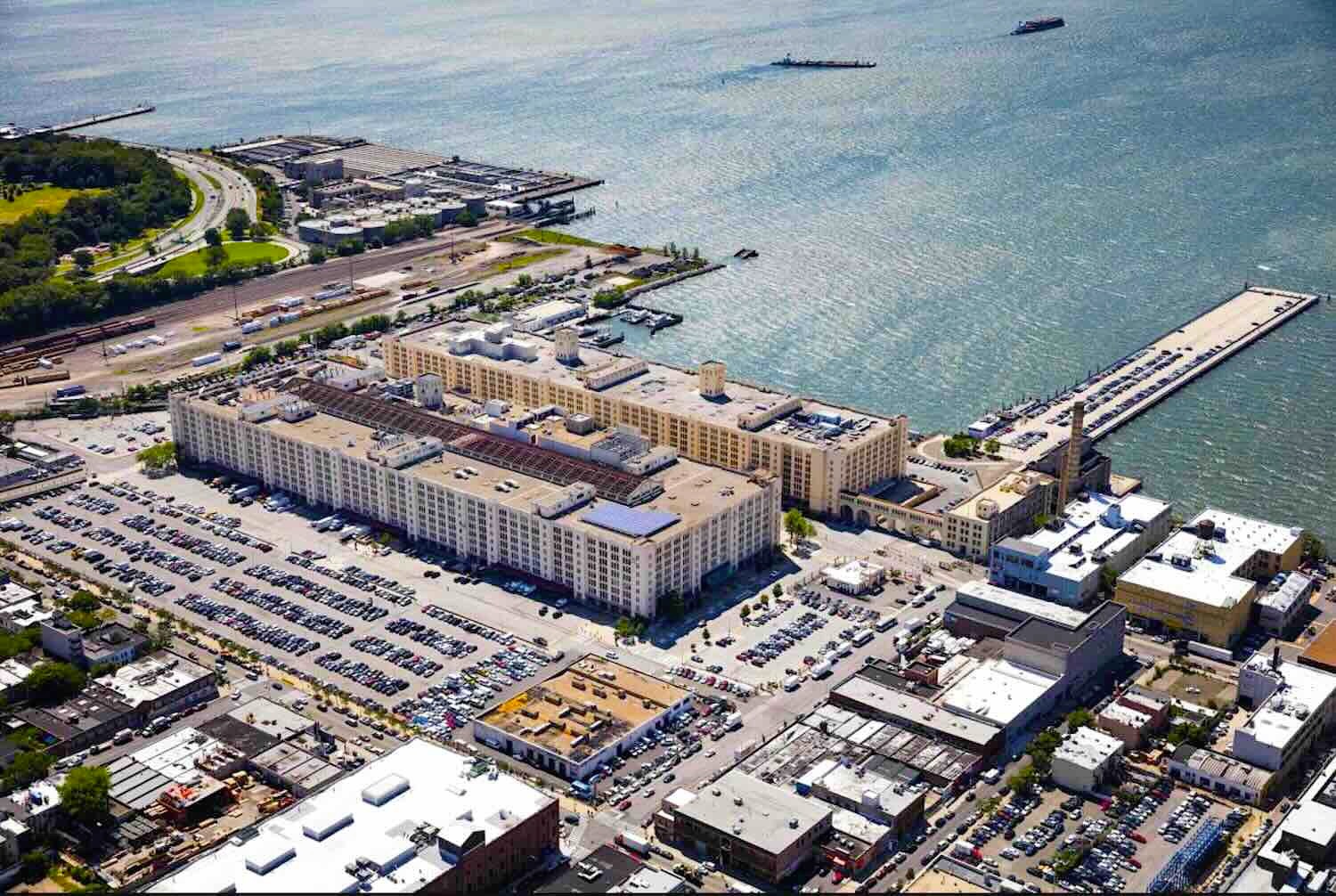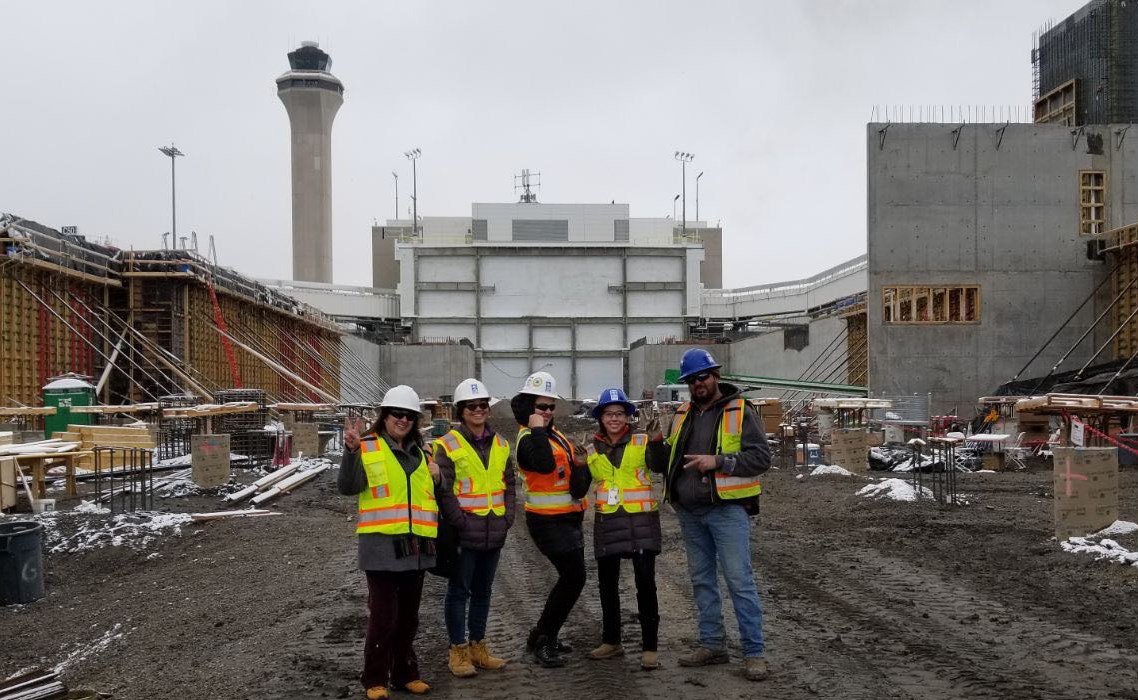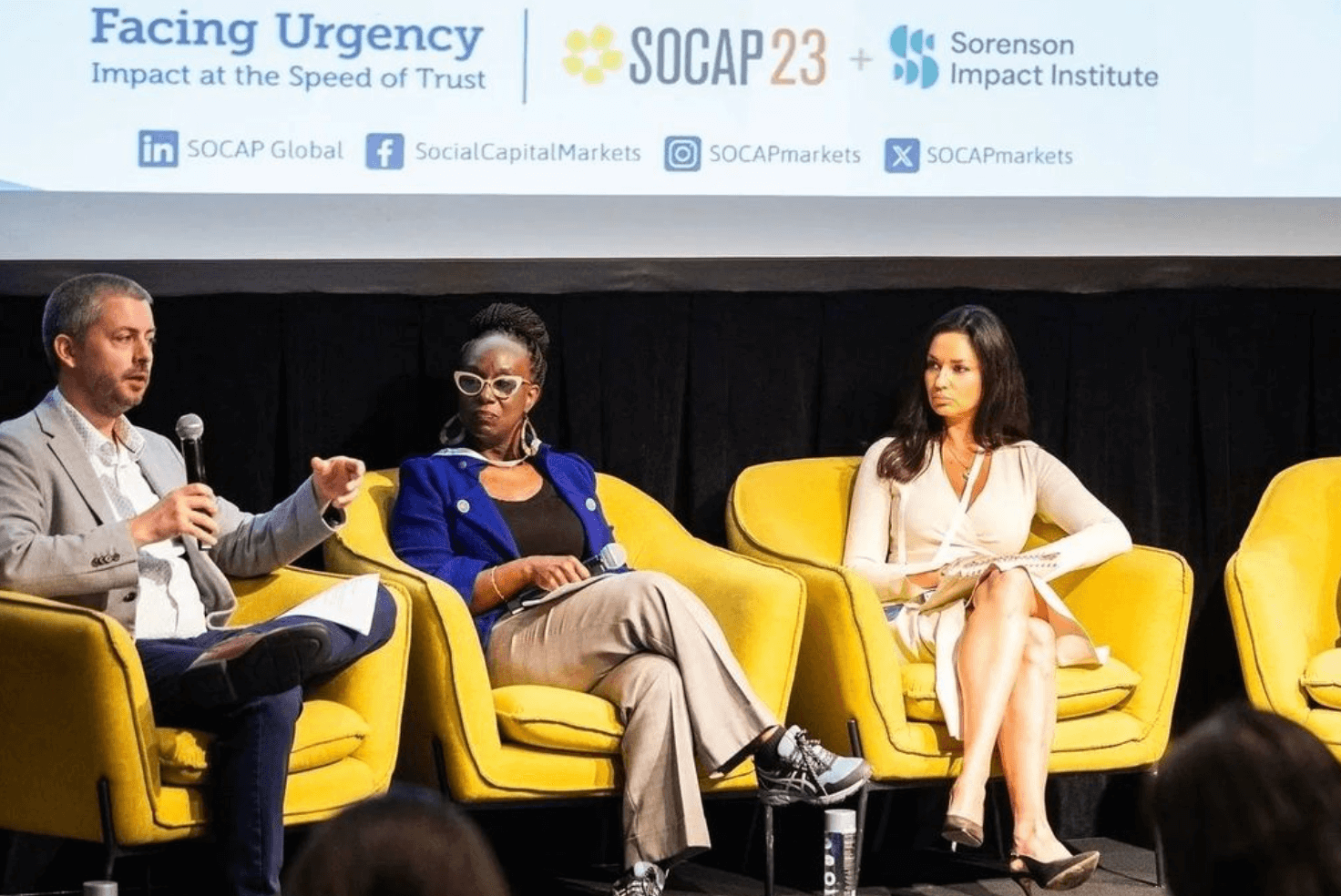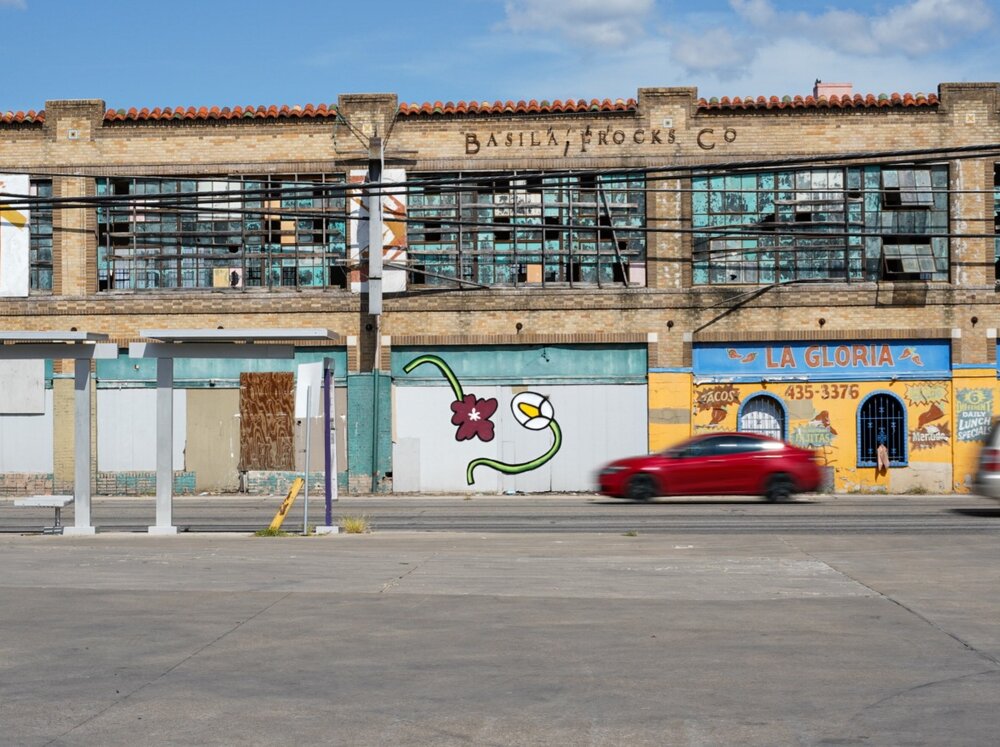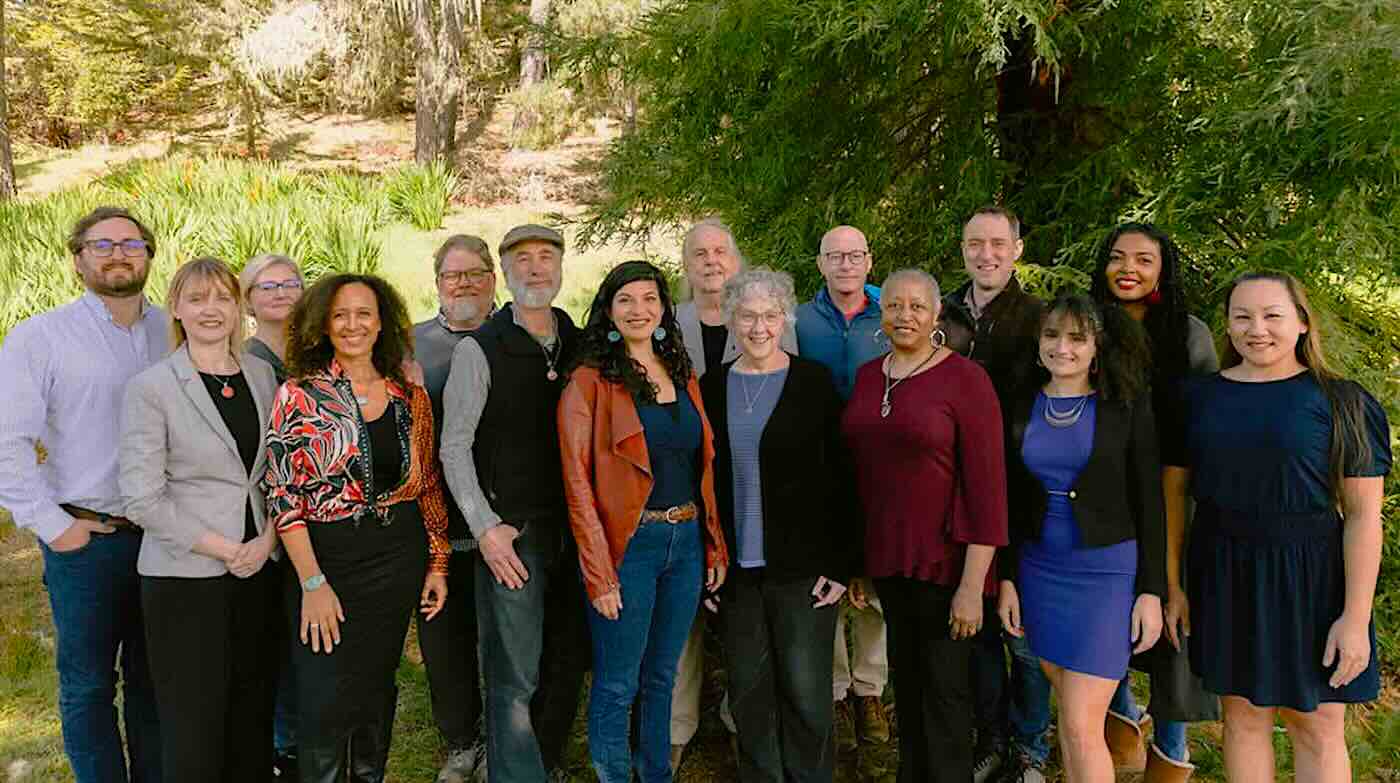Later this year, solar panels will be installed on the roof of the Brooklyn Army Terminal. Like thousands of emerging green projects across the country, the community solar project has been jumpstarted with federal climate funding.
The upgrade to the former military hub on the gritty waterfront in heavily Hispanic, working-class Sunset Park, could seem just another sign of the neighborhood’s rapid gentrification. But there’s a twist: the 725-kilowatt project is spearheaded and co-owned by UPROSE, a local climate justice group. Revenues will be reinvested in neighborhood resilience-building, including green jobs initiatives and advocating for climate justice in local solar and offshore wind projects.
“A lot of these kinds of community-based projects – it’s flipping the power relationship,” says Bracken Hendricks of Working Power, a Washington, DC-based developer of community solar projects that is looking to secure community ownership provisions in the coming wave of green, community-scale projects.
“If you’re serious that this is the next transformative wave of economic investment, and you’re going to have trillions of dollars of investment, the next question is: How does it hit the ground? Who does it touch? And who is brought along by this rising tide?” Hendricks told ImpactAlpha.
President Biden’s signature climate initiative, the Inflation Reduction Act, offers “bonus” tax incentives for projects that benefit low-income and energy-burdened communities. The goal is to reduce pollution, lower energy bills for local residents and perhaps create well-paying jobs. One of the most ambitious elements is the $27 billion Greenhouse Gas Reduction Act to back green banks and other local lenders.
Working Power is looking to flip the typical development script, in which outsiders own, operate and profit from community infrastructure and real estate projects.
For the Sunset Park project, Working Power is extending a $2.6 million loan to cover development costs, stepping in after an earlier partnership foundered. UPROSE’s organizing work and sweat equity, along with grants from New York, serve as its stake in the partnership. The group is an equal partner with decision-making power and contractual rights to revenue flows.
Some 200 households that opt in to the community solar plan will see 15% savings in their energy bills. More broadly, the project is expected to generate a $1 million revenue stream that UPROSE can reinvest locally.
At the heart of a just transition and energy democracy, says Uprose’s Elisabeth Yeampierre, is “a frontline-led vision that generates community wealth and prioritizes direct benefits to our community.”
Scaling up
A policy wonk who helped craft climate policy for Washington Gov. Jay Inslee’s 2020 presidential campaign, Hendricks co-founded Urban Ingenuity with clean energy developer Ian Fischer to do property assessed clean energy, or PACE, deals in Washington DC. They saw firsthand the barriers to deployment and how the capital market offerings are often disconnected from the needs of the local developers.
Small developers and community groups often couldn’t come up with the necessary upfront capital and lost control of projects. That led them to launch Working Power to “bridge market failures” and help “drive socially just, community-based, locally-owned economic development.”
“We’re in a moment where there is huge interest in the capital markets in investing in scaled pools of justice-centered clean energy,” says Hendricks. At the same time, community leaders like UPROSE are mobilizing their members and identifying resilience projects. Yet such projects have typically been localized and fragmented.
Working Power is looking to bridge the divide by seeding a pipeline of local, green projects co-owned by communities, then pooling them into a vehicle that enables mission-focused investors to put large sums of money to work for climate resilience and justice. It leverages the IRA’s tax incentives (which non-taxable entities can turn into cash) and Working Power’s low-cost upfront capital to derisk projects and reduce costs.
Working Power firm is eager to work with any of the groups applying for a piece of the $27 billion Greenhouse Gas Reduction Fund. It has provided a letter of support for Climate United, led by Calvert Impact Capital, which is seeking a mandate from the National Clean Investment Fund, and with other bids under the Solar for All part of the GGRF.
It will be months before the federal backing will enable local lenders to provide long-term, low-cost capital for community projects. Hendricks said deploying community-scale solar in areas with less supportive environments, such as parts of the South, will require philanthropic and mission-oriented investors to get projects to the point where they can secure GGRF-backed financing.
Working Power raised $5.25 million in 2020 in program-related and other investments from funders including Ceniarth, the Kresge Foundation and the Sierra Club Foundation, to provide pre-development support to community projects and test out its community ownership model. Each project, including a solar array installed on a Washington DC water utility’s capped reservoir and another over a church parking lot in DC’s Lincoln Heights neighborhood, required a bespoke capital stack of tax incentives, grants and equity.
Working Power is now looking to raise $50 million for a second impact fund to scale the concept and provide vetted, standardized and pooled investment opportunities for mission-related investors. The Waverley Street Foundation, Laurene Powell-Jobs’ foundation focused on locally-led climate solutions, has anchored the Working Power fund with $5 million and an offer of matching funds to crowd in additional investors.
“The only way to deploy renewable energy at the speed and scale needed is by ensuring communities have a genuine stake in that infrastructure development,” Waverley Street’s Amanda Eller said.
Working Power is developing new projects with community groups and labor unions in a half-dozen states. In Peekskill, New York, it is working with Ecological Citizens Project to install solar arrays on ten properties. The nonprofit plans to use its portion of revenues to create a “food sovereignty fund” to support its public food gardens.
“We’re using smart capital, public dollars and the scaling capability of the capital market to look to national scale for this justice-centered, community-owned part of the market,” said Hendricks.
Next frontier
Ensuring community wealth and ownership through the infrastructure and housing projects resulting from the Inflation Reduction Act is emerging as the next front in The Great Deployment, the historic climate-friendly upgrade already underway.
Sharing the wealth of the energy transition was a core concern at the Aspen Institute’s recent climate festival in Miami. Aspen’s Ida Rademacher said the energy transition “helps us accelerate the kind of equity transition that leads to fundamentally different outcomes for households and communities and more deeply shared prosperity.”
Inclusive ownership and economic opportunities can make the climate infrastructure buildout “a powerful force multiplier for inclusive wealth creation,” Rademacher told ImpactAlpha. “This is about leveraging a critical moment to ensure that our progress in supporting an energy transition simultaneously advances an equity transition that ensures more deeply shared prosperity across all of our communities, and for future generations.”
Brooklyn-based BlocPower is seeking to create ownership opportunities within its building electrification and energy retrofit projects. BlocPower is exploring a project to eliminate fossil fuels from a large working-class housing co-op in Bridgeport, CT. Property values can go up when the company installs heat pumps and other cost-saving green tech.
“There just isn’t a path to get to a national clean energy infrastructure without distributed ownership,” BlocPower’s Donnel Baird said at the Aspen Institute gathering.
“We need to create jobs, but we also need to create ownership opportunities for these financially underserved communities to own portions of the green infrastructure that the IRA is funding,” Baird told ImpactAlpha in a recent interview. “People need to have something larger and be part of a larger vision.”
BlocPower is looking to contract with worker-owned construction and service companies. Baird envisions a “new ownership model” where energy retrofits raise asset values for the diverse, working class homeowners, and the companies doing the work are worker-owned as well.
“A lot of people are focused on grants and jobs,” he says. “Not enough people are focused on how to make sure those grants and jobs translate to ownership.”
Roodgally Senatus contributed to this story.

